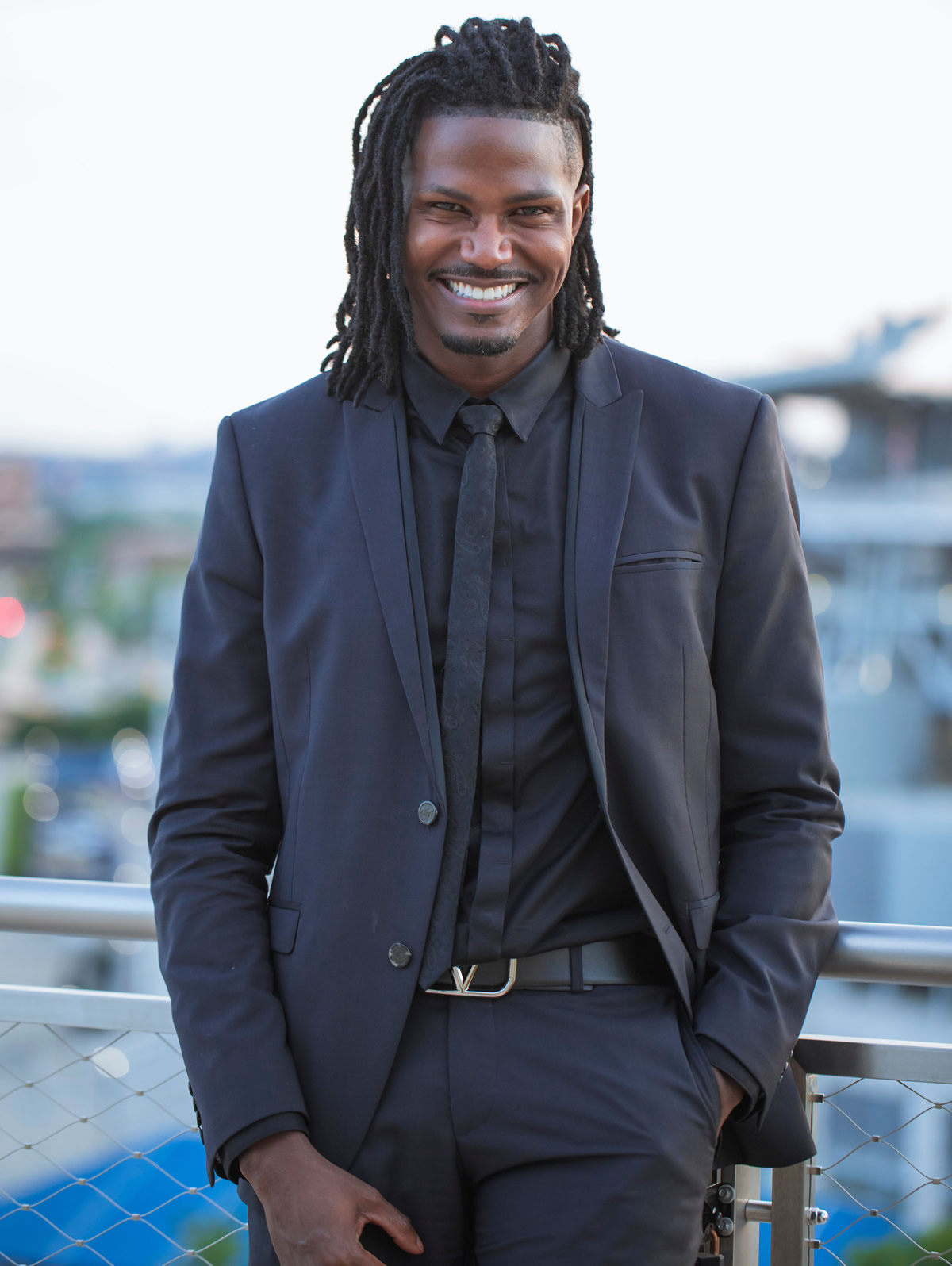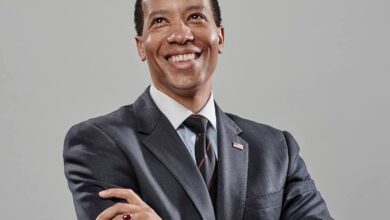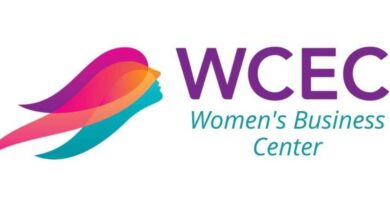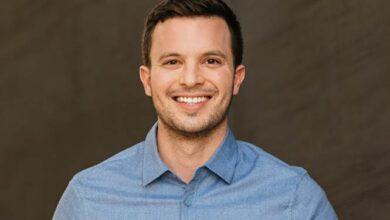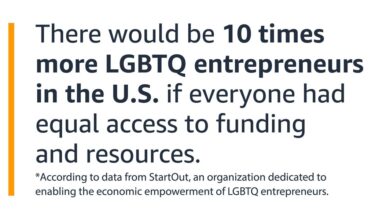From early struggles to Obama’s White House, Black pansexual exec talks resilience, self-love
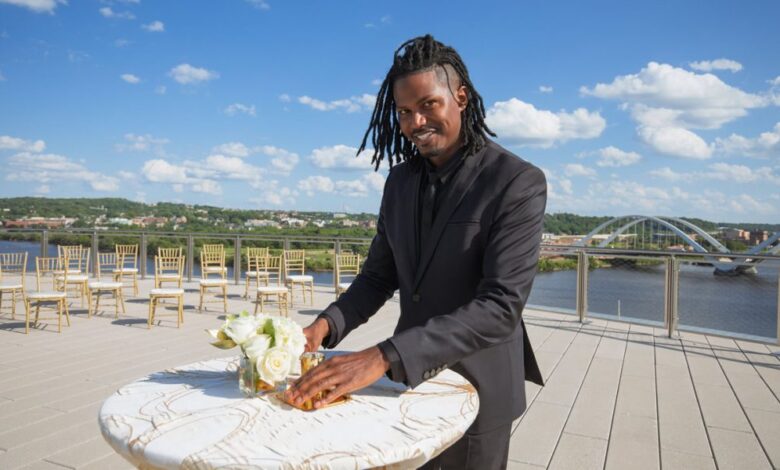
(Editor’s note: This is the fifth in a multi-part summer series of stories taking a closer look at how a group of diverse LGBTQ entrepreneurs survived and thrived during the pandemic. The series is sponsored by the National LGBT Chamber of Commerce. All installments in the series are available on our website.)
The road to loving himself as a Black gay man hasn’t been easy for a 38-year-old business owner who once worked as a communications expert for both the U.S. House of Representatives and former President Barack Obama.
When Marcus A. Williams, the principal consultant and owner of D.C.-based MW Consulting, sat as a child around the dinner table with his family, his mother told them their house was going to be foreclosed on.
Williams recalled how he admired the strength it took for her to calmly tell them where they each were going to stay until his parents figured things out. Fortunately, the phone rang with an 11th hour offer to rent a home they could move into immediately.
Williams never forgot that day at the table or that lesson in resilience.
“I grew up in a rough neighborhood with drug abuse and family members who were incarcerated,” Williams said. “To be able to come from that environment and go to Penn State and then start a business — I take that as a sign to my community that it is possible.”
As the owner of a full-service communications and Information Technology consulting firm generating gross revenues of $568,000 in 2019, Williams wants to show others that they can also beat the odds.
But a major problem historically for Black-owned businesses has been unequal access to capital.
According to the 2018 Small Business Credit survey, large banks approved about 60 percent of loan applications from white small business owners, but only 29 percent from those identifying as Black, meaning most Black small business owners who apply for loans are turned down.
This problem was exacerbated during the height of the pandemic when the Payroll Protection Program, intended to shore up small businesses through the crisis, was administered primarily through large banks that favored their preexisting clients, according to a 2020 report by the Brookings Institute.
When Williams applied for a PPP loan, he was turned down without a clear reason. He was fortunate he could turn to the National LGBTQ Chamber of Commerce (NGLCC), which helped him secure grants and access to other programs that helped his business survive the crisis.
Cision PR Newswire reported only 2.3 percent of employer businesses in the U.S. are Black owned, and in the IT field specifically, Black and Latinx workers remain underrepresented in tech jobs by nearly 50 percent, according to Brookings 2018 data.
Additionally, Black LGBTQ adults are more likely to experience economic insecurity than non-LGBTQ Black adults, according to a 2021 report from the Williams Institute. Research by the Movement Advancement Project from 2013 points to discrimination and unsafe schools as two factors contributing to the disparity.
Williams told the Blade how he came to deal with these challenges to business and to his identity in his own way.
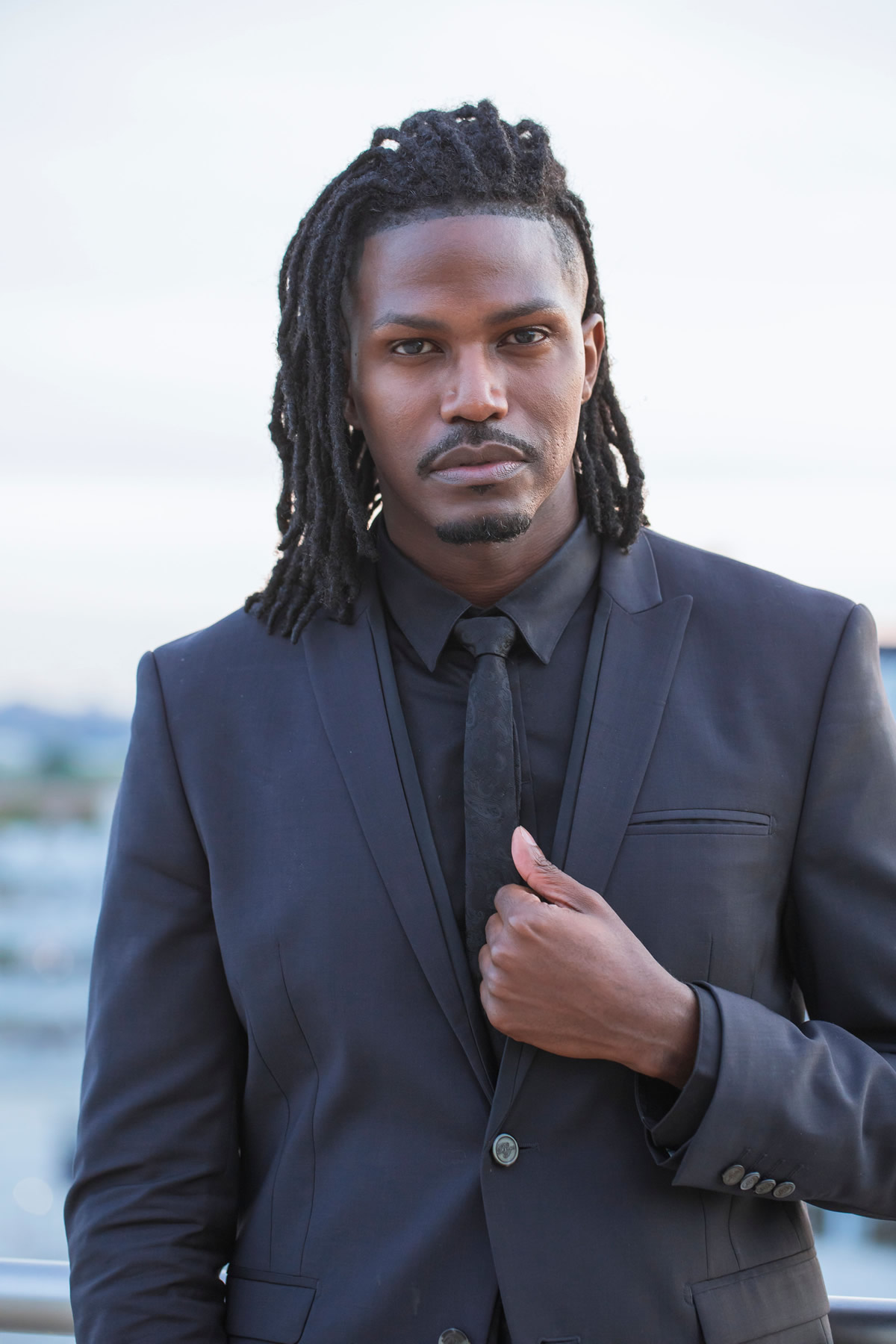
‘I am Black first ’
Williams recently returned from a trip to Ghana where he visited the former ports used during the transatlantic slave trade. The experience was a moving one for him, as well as insightful.
“We have been resilient since we were first captured and brought to this country to build it,” he said, acknowledging the strength he saw in his mother and his grandparents. “Resilience is an innate survival trait for us. It is what is in our blood from our ancestors.”
The experience gave him a deeper understanding of who he was and what that meant historically. He understood that for him and how he carried himself, his color was often the most visible part of him, and people made assumptions about him based on that.
“When I graduated [from Penn State], I wasn’t getting any job offers,” Williams said, adding he was excited to see friends do amazing things with their careers but wanted more for himself.
He finally landed an interview with the CW network in New York in his field of broadcast journalism. His mother wanted to lend her hard-earned money to help him attend the interview, but he wasn’t certain this path was in his future.
After watching a friend die from cancer at age 28, he heard one of his “guardian angels” encouraging him to go for his dreams — a path that eventually led him to Obama’s White House.
He called this his “Janet Jackson ‘Control’ moment,” comparing the decision to take control of his future to the similar feelings the legendary pop star expressed in her breakthrough song and album. But he wants others to understand that path wasn’t easy.
His business struggled financially during the pandemic crisis, and though he was reluctant to take on more debt, he applied for a PPP loan only to be rejected. He grew desperate.
The NGLCC helped him access grants and programs that helped keep his business afloat, but he also had to rely on his mother to help him pay his bills – something his pride usually didn’t allow him to do, but he had to bend in order to survive.
“I am Black first and I want people in the Black community to see that and absorb it,” Williams said. “I’m not an activist out here trying to be a role model, but I understand that the more visible you are, the more you can be an inspiration to others.”
NGLCC ‘helps me feel comfortable in my skin’
Years earlier, Williams had traveled to Paris for his 30th birthday. While he was there, he had another life-changing moment about realizing how far he’d come and appreciating the journey and his many blessings.
“When I said to love myself more, it made me emotional and I cried for 15 minutes,” he said. “My soup got cold. They brought me a fresh one.”
Some Black LGBTQ people have reported challenges with their intersectionality, which can lead to feelings of disconnection from larger communities. The Williams Institute found only 49 percent of Black LGBTQ adults felt socially connected to the larger Black community.
This is in contrast to 62 percent of Black LGB adults who reported feeling connected to the larger LGBTQ community (only 29 percent of Black trans adults felt connected to their larger gender communities).
These numbers indicate the difficulties Black LGBTQ people can face when navigating intersecting identities. And for Black gay business owners, this can be an additional layer to deal with on top of running a business during a crisis.
Despite these challenges, Williams said during that moment of reflection in Paris, he moved to a new place of self-acceptance. But he also admitted that “one cry doesn’t make you feel like you’re going to be out and proud,” but it was a step in the right direction.
Williams said each time he told others about owning a certified LGBTQ business enterprise, it was a little easier, and he became a little more proud.
“The more I say ‘yes, I am LGBTQ,’ and the more I talk in focus groups about the challenges I face, the more it allows me to be more comfortable in my skin,” he said. “It’s not about if people can tell if you’re in the community, it is about your comfort in being able to say it. And that is another thing about how beautiful this process about being a business owner has been.”
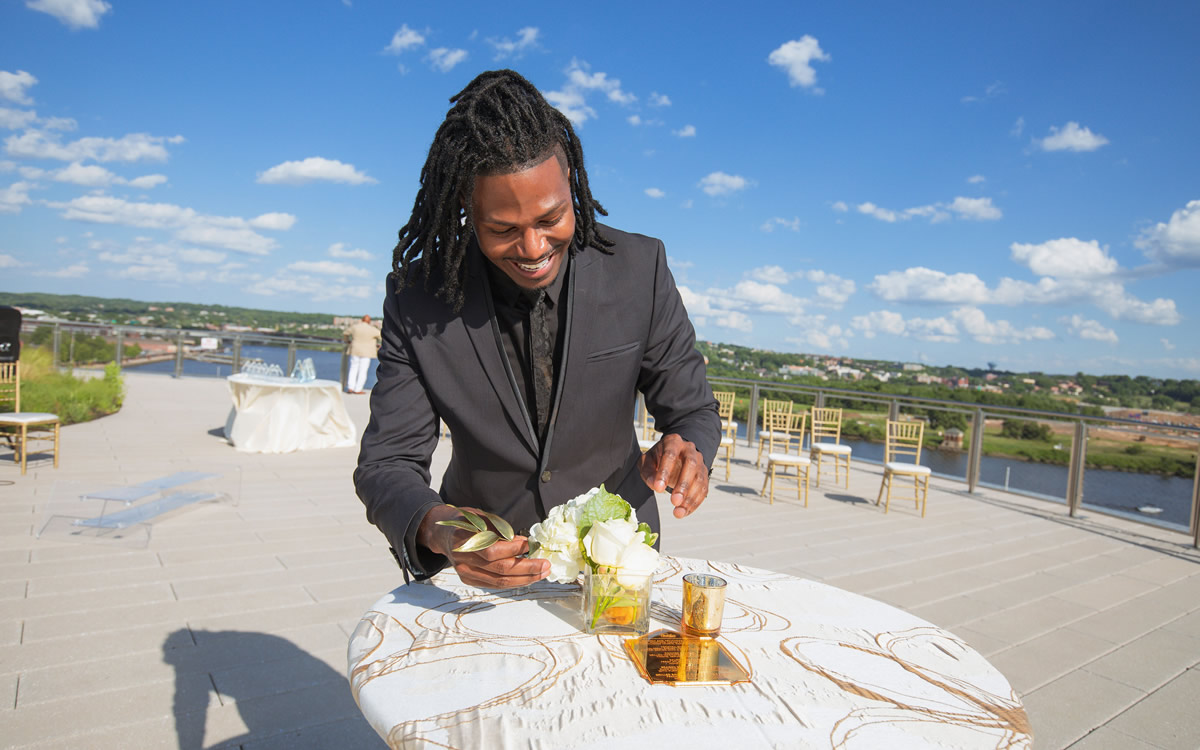
Williams is extremely grateful for the mentoring he has received from the NGLCC, particularly from its Community of Color initiative and from being part of the inaugural entrepreneurial cohort.
He said having such initiatives shows NGLCC understands that LGBTQ business owners of color have special needs within the larger community and often need a little more help.
“That understanding is a level of respect and cultural competency that I encourage others to implement,” Williams said, for a moment donning his hat as a professional strategic communications consultant.
Williams’ advice to Black LGBTQ youth and others who are interested in starting a business is to do the research and make it happen, and to see failures as opportunities to develop resilience.
He also advises businesses seeking long-term economic recovery to have both minority business owners and consumers at the table as part of the conversation.
